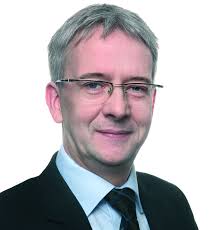Bakkafrost aims at shorter growth cycle

Bakkafrost CEO Regin Jacobsen has spelled out further plans for improved biological performance at both its Scottish and Faroe Islands salmon farms, including raising smolt sizes by around 30% or more.
Presenting the company’s Healthy Living 2021 sustainability report, he revealed that one of the longer term measures will be to halve the growth cycle in Scotland down to 10-12 months by increasing the weight threshold for releasing smolts into seawater to 500 grams.
This, he told shareholders, will be a game changer that will significantly reduce the biological risk.
He explained: “Growing larger smolt comes with new challenges, and learnings, but more importantly, we have gained valuable knowledge in how to implement the large smolt strategy in our operation in Scotland.
“These learnings have also been implemented and tested in the Faroe Islands where we already have seen the positive effect. In 2021 the harvests in the Faroe Islands were from smolt transferred at a mean weight of 274g.
“The transferred smolt weight in 2021 was however 382g, we will therefore see a gradual reduction in production cycle over the next couple of years.
“We believe the improved biological performance that we have seen from this stock is as a result of larger and more robust smolt.”
Jacobsen added: “In our freshwater division, we have refined a range of parameters important for improving the robustness and biological performance of large smolt and made significant improvements.”
He stressed that to continue to make progress it was important to embed sustainability into the Bakkafrost culture.
“In 2021, we conducted feed trial projects to optimize feed recipes and the absorption of nutrients and minerals to improve fish health and reducing the benthic load. We have also researched biomarkers to be used in an early warning system for fish health.
“However, early signs of normalisation were seen during the first half of the year. Overall, Bakkafrost has managed well during the pandemic, employee safety has been the top priority, and Bakkafrost has adapted operations to meet this aim.”
A high level of productivity has been maintained and Bakkafrost has been able to navigate well through the troubled seas of new and altered market conditions.
Reviewing the past 12 months, he said the company has steadily unwound from the pandemic, and the effect on Bakkafrost’s operation has reduced.
Overall, Bakkafrost had managed well during the pandemic with employee safety being the top priority, the report says. Bakkafrost has adapted operations to meet this aim while maintaining a high level of productivity and navigating through a troubled sea of market conditions.
Jacobsen said: “During 2021 we have steadily unwound from the pandemic, and the effect on Bakkafrost’s operation has reduced. We are now four years into our Healthy Living Plan and we were very pleased to look back and review progress over these years.
“The main accomplishments included initiatives from: our investment in a new biogas plant, operational in 2020; the establishment of our Healthy Living Fund aimed to build partnerships with organisations that address material issues affecting our communities; our partnership with the University of the Faroe Islands supporting natural sciences, with a focus on aquaculture; to the investment of a fully electric workboat.”
The company acknowledges it is still facing challenges. The CEO said: “We had issues with sea lice in the second half of the year in the Faroe Islands. This was caused by a Covid-related delay in fitting new delousing equipment on board M/S Martin, our main delousing service vessel.
“ The delay hindered us from following our successful and preventive delousing strategy, which aims at ensuring low sea lice levels before the autumn. In Scotland we experienced elevated mortalities in the fall.”
He said the underlying issue was gill health: “Late in Q3 and into Q4, there was a significant bloom of hydrozoans and micro jellyfish, which further deteriorated gill health. In short, the microjellyfish bloom in addition to reduced gill health caused significant mortalities.
“Our freshwater treatment capacity will be expanded with two new freshwater treatment vessels joining the fleet this summer, we will permanently have two freshwater vessels in Scotland and one vessel with freshwater treatment capacity in the Faroe Islands.
“Treating the fish regularly with freshwater is an efficient way to rinse the gills restore gill health and ensure more robust healthy growth.”
Bakkafrost is planning to raise its annual harvest to 150,000 tonnes within five years.

Bakkafrost CEO Regin Jacobsen

